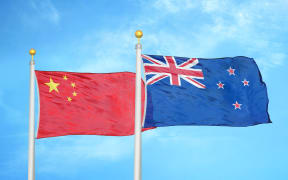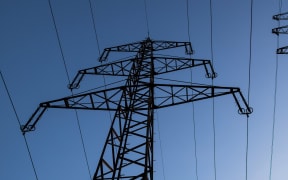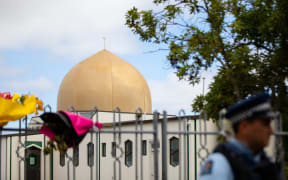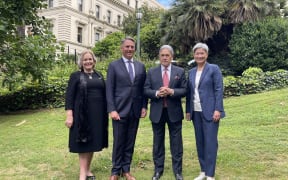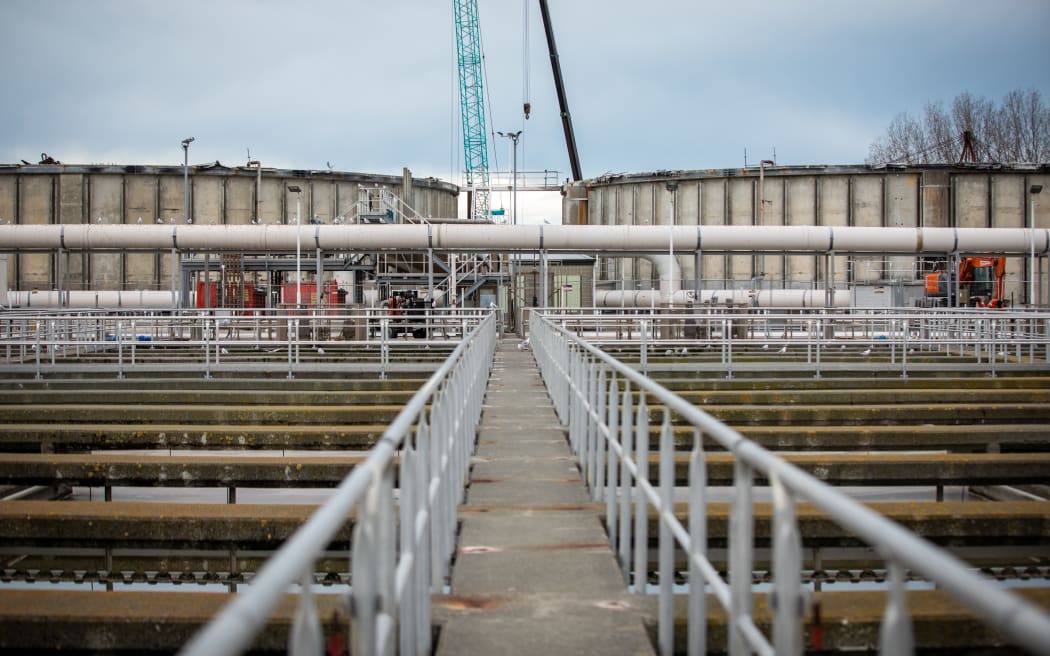
File photo: Officials have highlighted the pressing need to protect critical infrastructure such as water treatment plants, in their overarching briefing to the Minister for National Security and Intelligence. Photo:
Officials have stressed the importance of protecting critical infrastructure, in their overarching briefing to the minister for national security and intelligence.
They have also told the minister Christopher Luxon that foreign interference aimed at co-opting "influential people" remains a threat.
The briefing to the incoming minister, or BIM, comes amid major reforms of the national security set-up flowing on from the 2019 mosque attacks.
It comes on the heels of an overhaul of strategy that names 12 core national security areas - within that, a countering foreign interference work programme has a focus on protecting critical infrastructure and sensitive technology.
The FBI in the US this week said it had disrupted state-backed Chinese hackers targeting malware at water treatment plants, the electrical grid and transportation systems.
"China's hackers are positioning on American infrastructure in preparation to wreak havoc and cause real-world harm to American citizens and communities," FBI director Chris Wray told lawmakers in Washington.
The briefing to Luxon envisaged advising him in his first three months on improving critical infrastructure.
It named China when it comes to strategic competition, that is one of the "complex and disruptive security challenges that are impacting individuals and communities more directly than every before".
"China's growing economic, political, and military power, and more assertive pursuit of its interests abroad, are key drivers of [strategic] competition," it said.
"Other countries, such as Russia, Iran, and North Korea, are exacerbating this dynamic.
"Strategic competition is a driver of threats to New Zealand's national security interests, including challenges to the rules-based international system."
It also noted that the Security Threat Environment report for 2023 "for the first time ... publicly names China, Russia, and Iran as carrying out foreign interference in New Zealand".
Despite the growing threat, the lead time on upping resilience is long, with a second phase of public consultation due this year but no legislation till next.
The Department of Prime Minister and Cabinet - which heads up national security - was leading work to "develop a new regulatory framework to enhance the resilience".
The move was from sector-specific regulation to a system-wide approach, which enables the setting of "minimum resilience requirements consistently across all critical infrastructure sectors".
"It also recognises the increasing risks currently facing New Zealand's critical infrastructure."
Australia moved on this in a big way last year.
'New Zealand and our Pacific neighbours are and will remain targets'
The US director of the Department of Homeland Security's Cybersecurity and Infrastructure Security Agency echoed the FBI director this week, telling lawmakers:
"This is a world where a major crisis halfway across the planet could well endanger the lives of Americans here at home through the disruption of our pipelines, the severing of our telecommunications, the pollution of our water facilities, the crippling of our transportation modes - all to ensure that they can incite societal panic and chaos."
The group of Chinese hackers known as Volt Typhoon had infiltrated targets through cloud and internet providers, disguising themselves as normal traffic, US officials said.
The Washington Post reported "China has repeatedly denounced the US government's hacking allegations as baseless" and accused the US of hacking its own operations.
The new briefing to Luxon regarding foreign interference, said: "New Zealand and our Pacific neighbours are and will remain targets, with some countries likely to keep trying to penetrate our government IT networks, acquire sensitive research, co-opt influential figures."
Security agencies were taking measures to promote greater transparency of foreign activity and the "adequacy of relevant criminal offence".
It also said that emerging technologies include a broad range of new capabilities that have the potential to be highly disruptive or have transformative effects.
Within the new structure, Luxon was told "there is an opportunity for you to identify a core group of national security ministers to meet periodically with their chief executives to discuss assessments, threats, issues and responses".
The briefing did not mention in any material way an overarching National Intelligence Agency that the Royal Commission into the mosque attacks said must be set up.

